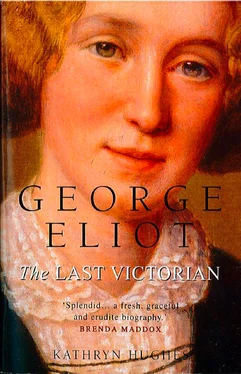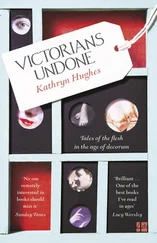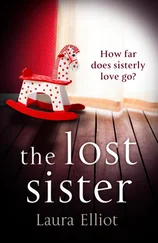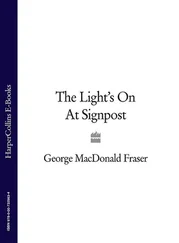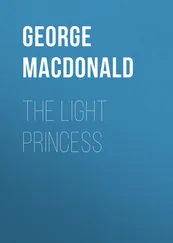Maria, unsurprisingly, did not reply and Mary Ann realised that this time she was in danger of losing her only intimate friend: despite her boastful teasing, her new contacts in Coventry had not yet yielded the kind of emotional intimacy she craved. In a continuation of that earlier pattern of assertion followed by withdrawal, she wrote a few days later with muffled apology – ‘tell me that you forgive my – something between brusquerie and confusion in my last letter’. 15
Somewhat mollified, Maria responded by again raising the vexed subject of her Christmas visit. After a delay of a week and a half, Mary Ann wrote back with the strongest hint yet that something profound had happened to her which Maria might not like. She mentions that her ‘whole soul has been engrossed in the most interesting of all enquiries for the last few days, and to what result my thoughts may lead I know not—possibly to one that will startle you, but my only desire is to know the truth, my only fear to cling to error’. Then she continues urgently, ‘Think – is there any conceivable alteration in me that would prevent your coming to me at Christmas? I long to have a friend such as you are I think I may say alone to me, to unburthen every thought and difficulty – for I am still a solitary, though near a city.’ 16
Maria evidently wrote back reassuring Mary Ann that there could be no ‘conceivable alteration’ in her friend that would make her not want to spend Christmas with her. Word of Mary Ann’s religious crisis may have already reached Maria Lewis through their network of mutual acquaintances. Or perhaps she put Mary Ann’s restlessness down to the fact that the Evans family was going through one of its periodic crises.
Isaac was about to be married. Some time previously, probably when he was living with his tutor in Birmingham, he had met a woman called Sarah Rawlins. A large dowry from her leather-merchant father sweetened the fact that she was ten years older than the prospective groom. The two families had long been acquainted and Mr Rawlins had been a pallbearer at Christiana’s funeral. And with a son in the Church, the whole family was clearly working its passage away from Trade. Like his father before him, Isaac was shrewdly cautious when it came to choosing a bride. Sarah, as with Christiana in the generation before, appeared to have most of the qualities required in the wife of a young man determined to consolidate his position as a gentleman.
Isaac was a ditherer in emotional matters, especially when their ramifications reached so far. If he and Sarah married, the obvious move was for them to become the new master and mistress of Griff, especially now that Isaac was already running much of the business. But in that case, where would Robert and Mary Ann live? Doubtless Sarah would be quite happy to look after the old man, but whether she really wanted her young sister-in-law watching her every move was quite another matter. Mary Ann might not have relished every aspect of housekeeping, but she depended on it for her sense of identity and was not about to relinquish it easily. ‘I will only hint’, she writes to Maria Lewis in May 1840, ‘that there seems a probability of my being … severed from all the ties that have hitherto given my existence the semblance of a usefulness beyond that of making up the requisite quantum of animal matter in the universe.’ 17 Toppled from her throne, she was unlikely to become an easy and serene deputy to Sarah. Her role henceforth would be marginal and ambiguous, involving a great deal of routine needlework and, in time, childcare. More specifically, it would mean taking instructions from the woman who had usurped her in Isaac’s life.
Such a potentially unhappy arrangement might well have caused Isaac to think twice about marrying Sarah at all. In July 1840 Mary Ann reports that her brother has gone to Paris and that the marriage is uncertain ‘so I know not what will be our situation’. 18 Two months later the couple are re-engaged, although this time Mary Ann is cautiously optimistic that Isaac and Sarah will set up home elsewhere, so that ‘I am not to be dislodged from my present pedestal or resign my sceptre.’ 19 A few weeks further on the situation has changed again, although this time a workable solution emerges. Isaac and Sarah are to take possession of Griff, while Robert and Mary Ann will move to a new home in Coventry.
Mary Ann’s letters to Maria are loyally reticent about the anxiety to which she was being subjected during these ten agonising months. However, she was clearly at breaking-point. In September, possibly to celebrate the fact that the engagement was back on, Mary Ann travelled to Birmingham with Isaac for the annual festival. Together with Sarah they attended a concert of oratorios by Handel and Haydn, during which Mary Ann did her usual party piece of breaking down in hysterical tears, attracting embarrassed glances from her neighbours. 20
Some of Mary Ann’s upset can be explained by her continuing battle to resist the pull towards musical performance. She had displayed the same panicky defensiveness two years earlier during the oratorio at Coventry and again at Mrs Bull’s dancing party. This time, though, there was an added pressure. Sarah’s presence at the concert was a reminder to Mary Ann that she was on the point of losing the three things which gave her life ballast: Griff and its landscape, her authority as housekeeper and tireless parish worker, and the constant attention, albeit antagonistic, of her brother Isaac.
None of this would have been so bad if Mary Ann had felt that it would not be long before she too would be getting married and moving to a new home of her own. Her gradual release from Evangelicalism meant that she no longer necessarily believed that marriage was a worldly snare and by 1840 there are signs that she was beginning to notice attractive men when they crossed her path. In March she fell for a nameless young man whom she felt obliged to give up because of his lack of serious religion, or indeed any religion at all. Her one comfort from this short, intense attachment was that she was probably the first person to have said any prayers on his behalf. 21
A couple of months later she was describing Signor Brezzi, her language tutor, as ‘all external grace and mental power’, even though she told herself (via a letter to Maria Lewis), ‘“Cease ye from man” is engraven on my amulet.’ 22 This was the first of many infatuations with men who stood in the role of teacher. Until the age of thirty-four Mary Ann was to be involved in a series of unhappily one-sided love affairs, in which she confused a man’s delight in her intellect as a declaration of his sexual involvement. Luckily in this case there was no embarrassing moment of reckoning and the bachelor Brezzi seems to have been unaware of the feelings he had aroused in his eager pupil. Their lessons continued smoothly on her arrival in Coventry.
Although neither of these crushes had been very important, still Isaac’s engagement a few months later triggered Mary Ann’s sense of abandonment and her terror that she would be alone for ever. Even at this late stage she retreated into the language of Evangelicalism to explain to Martha Jackson – with whom she found it easier to talk about these things than the spinsterish Maria Lewis – about why she felt obliged to renounce her desperate need for love. ‘Every day’s experience seems to deepen the voice of foreboding that has long been telling me, “The bliss of reciprocated affection is not allotted to you under any form. Your heart must be widowed in this manner from the world, or you will never seek a better portion; a consciousness of possessing the fervent love of any human being would soon become your heaven, therefore it would be your curse.”’ 23 But if Mary Ann had decided to give up on marriage, her family had not. The reasoning behind the move to Coventry was that it would give her the chance to move in the social circles which might yield a husband. At twenty-one she was of a suitable age to embark on courtship and, although not pretty, she was clever, prosperous and good. A man might do worse than marry Miss Evans.
Читать дальше
